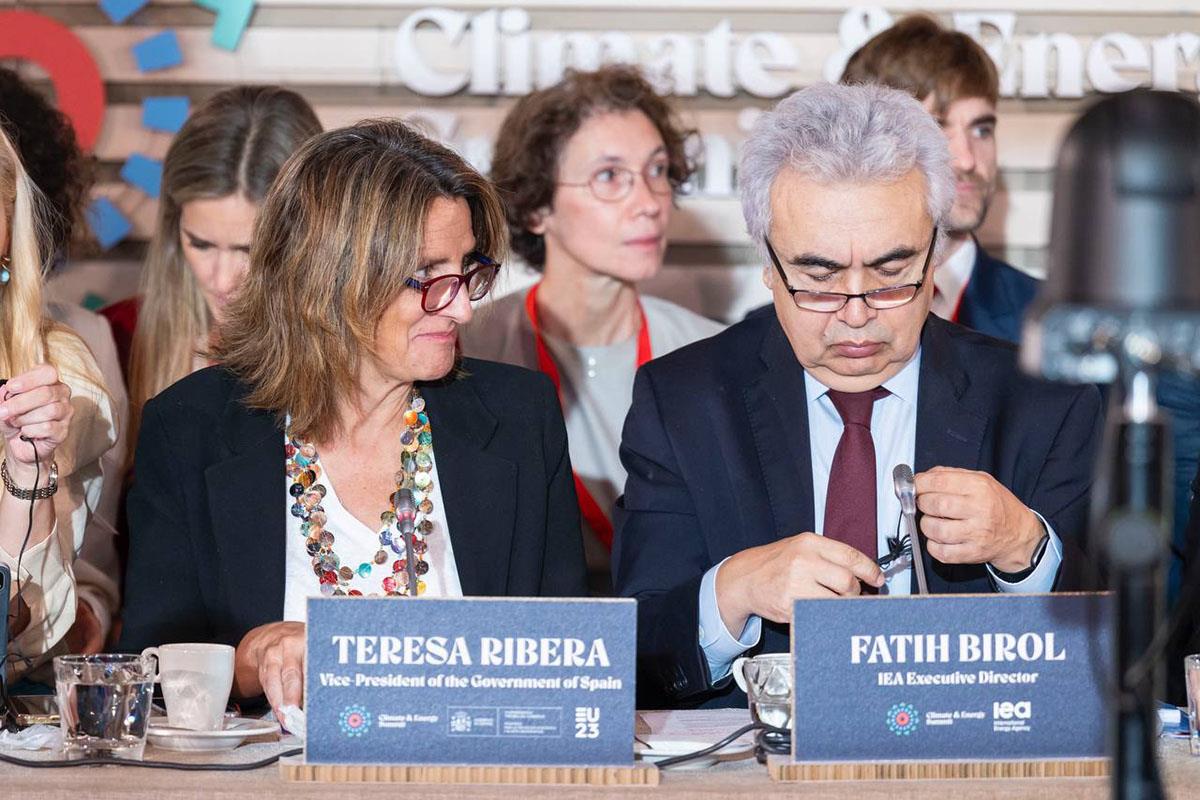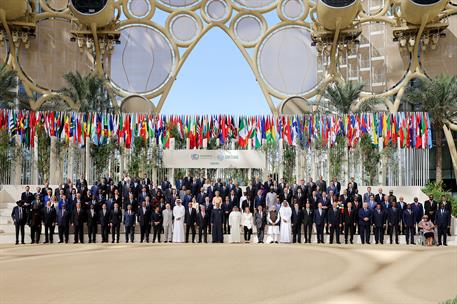Teresa Ribera takes over the chairmanship of the International Energy Agency's new commission for energy social justice
News - 2024.7.11
 The Vice President and Minister for Ecological Transition and Demographic Challenge, Teresa Ribera, and the Executive Director of the IEA, Fatih Birol, during the meeting of the international organization
The Vice President and Minister for Ecological Transition and Demographic Challenge, Teresa Ribera, and the Executive Director of the IEA, Fatih Birol, during the meeting of the international organization
The International Energy Agency (IEA) has appointed Vice President and Minister for Ecological Transition and Demographic Challenge, Teresa Ribera, as Chair of its new Global Commission on People-Centred Clean Energy Transitions, created to promote policies that support equity and affordability in clean energy transitions. The commission, which will include the heads of the energy, climate and labour portfolios of more than a dozen countries, as well as representatives of various civil society associations, will also be led by the Brazilian Minister of Mines and Energy, Alexandre Silveira.
"Clean energy transitions will only succeed if their benefits are shared with all sectors of society, including communities that have historically been on the margins of the energy economy. This starts with fair and equitable policies, which are the focus of this new Global Commission," said Fatih Birol, IEA Executive Director, who also expressed her "delight that Vice-President Ribera and Minister Silveira have agreed to serve as co-chairs".
PEOPLE AT THE HEART OF THE ENERGY TRANSITION
The transition to an energy system driven by clean technologies, enabling the decarbonisation of the global economy, must put people at the centre. Only then will it be possible to transform the energy system at the pace and scale needed to meet the global ambition of climate change mitigation.
Aware of this, and of the importance of designing and implementing policies that lead to a more equitable energy system, allowing all the benefits of the new energy model - job creation, wealth generation, higher quality of life- to reach the whole of society, the IEA has created the new Global Commission on People-Centred Clean Energy Transitions, which will draw on international success stories and the experiences of its members to develop actionable recommendations.
The launch of the Commission was announced last April, and the first meeting will take place in October during the G20 Ministerial Meeting on Energy Transitions in Foz do Iguaçu (Brazil), an agenda in which the issues to be analysed by the Commission will have special relevance, including social and economic development, equity, inclusion and justice, the creation of decent jobs and the protection of workers.
RECOGNITION FOR THE PROMOTION OF THE GREEN SOCIAL AGENDA
"Ensuring a just energy transition is a shared responsibility. The energy transition should not just be a change in the colour of electrons or molecules, but also an opportunity to ensure access to affordable energy, reduce inequalities and generate redistributive economic opportunities. This Global Commission is an important tool for coordinating our work in this regard," said Ribera.
Combining ecological transition with social justice has been one of the main commitments of the Ministry for Ecological Transition and Demographic Challenge (MITECO) which, under Ribera's guidance, has promoted innovative solutions to tackle the energy price crisis, such as the Iberian mechanism, which saved families more than €5 billion. The promotion of renewables, which has resulted in a growth of more than 100% in installed wind and photovoltaic capacity in just five years, generating quality employment and economic growth, and the defence of consumers and industry with the deployment of the social shield, which has allowed price rises to be contained to 2.3%, are some of the most important policies of recent years in terms of just transition.
Other policies that endorse Ribera's relevance as president of this Commission are the historic consensus reached under the Spanish Presidency of the EU, with the approval of a reform of the electricity market that will give greater visibility to investors and greater protection for consumers; the COP28 commitment to the definitive abandonment of fossil fuels; and in the area of water management, the nature restoration and ecosystem recovery in Doñana and the Mar Menor.
Non official translation





